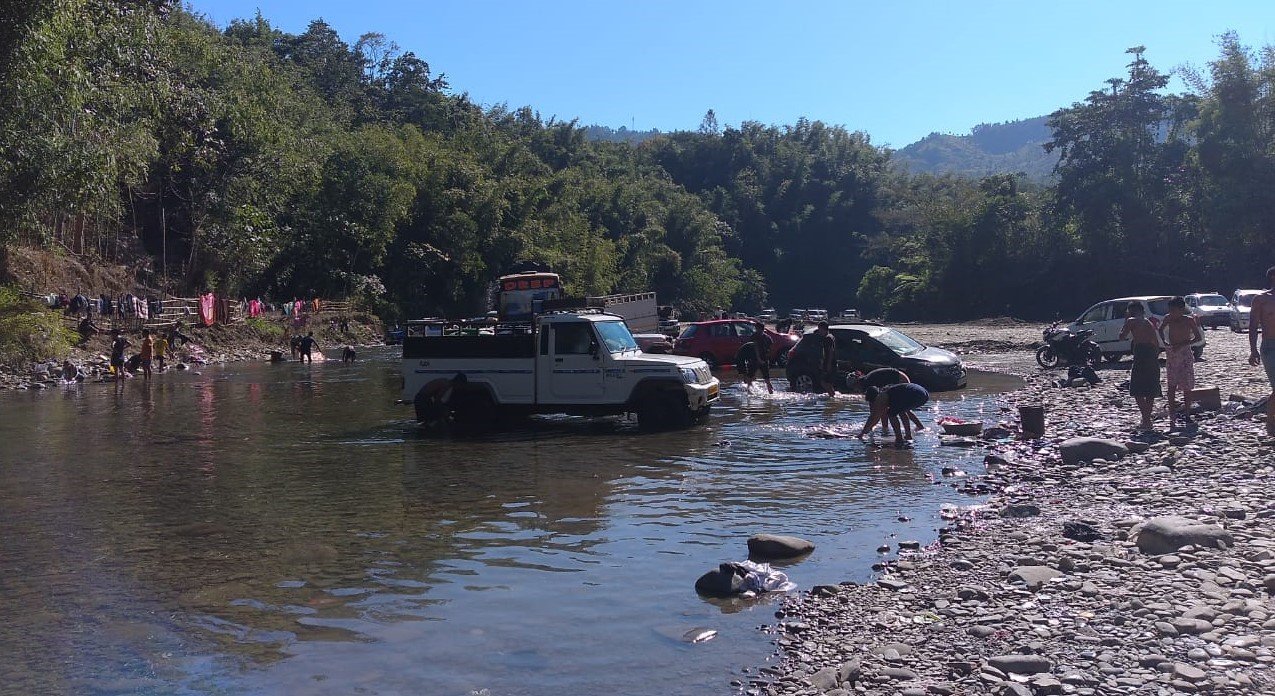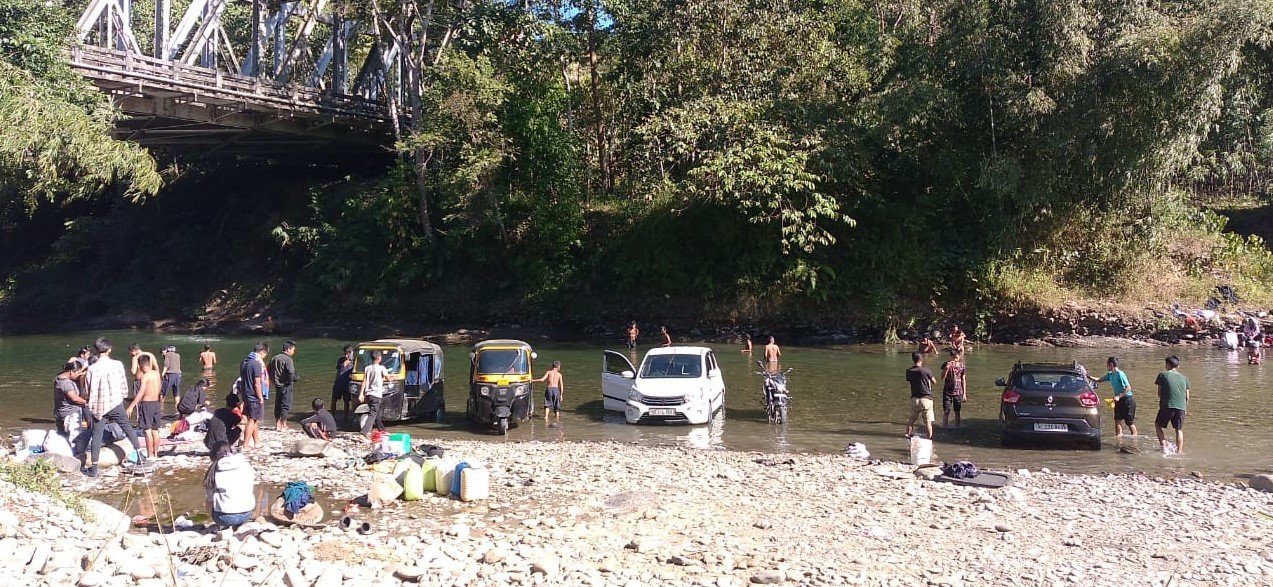Water is crucial for survival and is the most abundant resource but according to the Thompson Reuters Foundation about a quarter of the world’s population face extreme water shortages. In Nagaland too, scarcity of water is well-known.
In Mon town, this has become a severe issue. Speaking exclusively to Nagaland Tribune, residents share the frustration and feelings of hopelessness they face over this issue annually.
Residents have had to rely heavily on rainwater harvesting, although this is a temporary solution only during the rainy seasons. In the drier months, residents have had no other alternative but to fetch water from Tapi river, located some 8km away.

Tapi river.
Sharing their grievances, the residents spoke about the difficult financial situation they are put in as they need to hire vehicles or buy water directly from the sellers.
Regardless of age or time of day, residents have to walk a mile on foot to fetch water.
A Khoiwang Konyak, a retired havildar, Nagaland Police and resident of Chingai Ward told Nagaland Tribune that it has been over ten years since he has been eligible for water supply through the department.
Konyak has had to resort to buying water since the pipeline does not work. He added that his household has to depend more on rainwater harvesting. Konyak also shared his shock at the lack of changes in the situation even though there is a requirement.
A resident of Fire Brigade, Jahjon ward, Mansha Konyak said it has been a year now since a drop of water has come through the piped water source. The irregular water supply has made the winter seasons particularly challenging.
In order to fulfil her household water requirements, she harvests rainwater during the rainy season and utilises this during the drier months. However, this only lasts for a short time, after which she is left with no other alternative but to purchase water.
For other residents like Jelei Konyak, a resident of Power Station colony, the water supply through the department pipeline has been cut for a week. He was informed by the department that the main pipeline was broken.
For Montu, a resident of Walo ward, the winter months are tough due to the shortage of water supply. Whereas, for Ato Konyak of Jahjon ward, the 50 litres of water he receives twice a week is hardly enough to keep the household running.
Bomlen Phom, J E PHED Mon told Nagaland Tribune that the PHED department has received many complaints regarding the irregularity and shortage of water supply and stated that the department is trying to resolve these problems.
However, Phom said the department cannot afford to deal with the crisis due to lack of maintenance facilities and funds from the state government,
He said the expenditure of the tools and materials are much higher than the funds they receive. Even if the department receives funds, this is used to recover the dues, he added.
He shared that there are two main sources of water supply in Mon town – one at the Chui village and the other at Leangha village. He said the water that comes through Leangha village main source is slow and takes 4-5 hours to reach the stock tank at Council Hall, Mon town.
The water supply from the main source of Chui village, on the other hand, is sufficient and has had no problems as it takes one hour to reach the stock tank at DC Bungalow.
The main issue occurs because of the stock tank at the Council Hall – the pipes are old, rusted and prone to leakages, possibly causing shortage of water supply, he said.
With the winter months already here, the water crisis continues on for residents of Mon town. With no solution currently in sight, residents will have to continue purchasing water or depend on rainwater harvesting methods.


